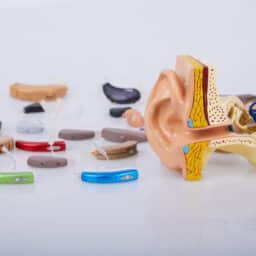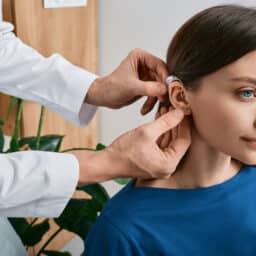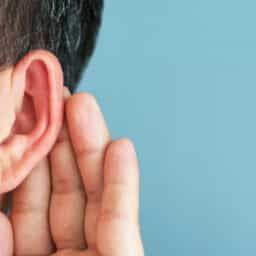Tips for Creating a Daily Hearing Aid Routine

Embarking on the journey of using hearing aids can be exciting but also requires a period of adjustment. Nearly 28.8 million Americans could benefit from the use of hearing aids. For those people, establishing a consistent routine for their hearing aids is crucial for optimizing their performance and ensuring they become a natural part of…
Treating Hearing Loss as a Senior: Why It’s Important

Sometimes, when you’ve been living with a condition for an extended period, it can feel easier to ignore it than to seek treatment. This belief is one of the reasons that people with hearing loss wait an average of seven years to seek treatment. While you may think your condition is manageable without the help…
Four Essential Hearing Safety Tips for the 4th of July

As the 4th of July approaches, fireworks and festivities are just around the corner, promising colorful and explosive displays. Whether you’re heading to the Plymouth County Fairgrounds firework show or enjoying sparklers and small poppers in your backyard, protecting your hearing amidst the festivities is crucial. Fireworks can reach up to 160 decibels, significantly louder…
Understanding AI in Hearing Aid Technology

You may have noticed that AI has been sweeping news headlines recently. AI, or artificial intelligence, represents the capability of machines to learn from experience and adapt to new inputs. While you might think of AI in terms of online chess games, virtual assistants and self-driving cars, you can also find it in modern hearing…
Understanding Hearing Loss Treatment: A Step-by-Step Guide

Approximately 15% of U.S. adults report some trouble hearing. Discovering you have hearing loss can be troubling and even a little scary, whether it gradually developed over time, as with age-related hearing loss, or happened suddenly due to loud noise exposure. While muffled voices or the quieter chirping of birds in Vernon Park can feel…
How Can Hearing Aids Restore Your Confidence?

Hearing loss is a widespread issue, with nearly 28.8 million Americans potentially significantly benefitting from their use. Among the myriad benefits of using hearing aids, one of the most notable is how hearing aids can help restore lost confidence. Often, hearing loss can lead to feelings of isolation and a loss of self-assurance. If you…
Staying Informed with Hearing Aids and Alerting Devices

Our ears play a crucial role in keeping us informed and alerting us to potential dangers, from the blare of car horns to the shrill of a wake-up alarm or a timely frisbee warning at Bacon Creek Park. A surprising 1.5 billion people in the world live with some degree of hearing loss. When hearing…
Understanding and Managing Worsening Tinnitus

Tinnitus, often described as a persistent ringing, buzzing or humming sound in the ears, can be an incredibly frustrating condition to live with. What adds to the challenge for many is that tinnitus often worsens over time. Understanding why this happens and exploring effective management strategies can provide much-needed relief and support for those affected…
How To Recognize and Manage Aphasia

Aphasia is a complex communication disorder stemming from damage to the brain regions involved in language. In the U.S., it impacts an estimated 2 million individuals, displaying a wide range of symptoms that call for individualized treatment plans. Deciphering Aphasia Originating from brain injury, often due to strokes and typically affecting the brain’s left hemisphere,…
What Are the Stages of Hearing Loss?

Hearing loss is a prevalent issue that affects auditory processing abilities due to various reasons, including inner ear damage or the inevitable process of aging. Data suggests that about 15% of adults in the United States experience some form of hearing loss. While some instances of hearing loss can be averted, understanding the nuances of…